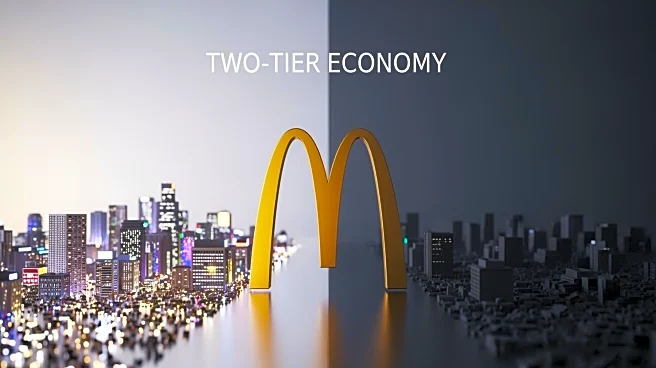What's Happening?
Chris Kempczinski, CEO of McDonald's, discussed the company's strategic response to a divided consumer landscape during an interview with CNBC. He described the current economic situation as a 'two-tier
economy,' where upper-income consumers are maintaining their spending levels, while lower-income consumers are experiencing a significant decline in traffic. Kempczinski noted that this decline is due to lower-income individuals either skipping meals or opting to eat at home. This trend has prompted McDonald's to expand its value menu to cater to the changing needs of its diverse customer base.
Why It's Important?
The bifurcation in consumer spending highlights the broader economic challenges facing the U.S. economy. As lower-income consumers reduce their spending, businesses like McDonald's must adapt their strategies to maintain profitability. This situation underscores the growing economic disparity and its impact on consumer behavior. Companies that can effectively address the needs of both high and low-income consumers may gain a competitive edge. The trend also raises concerns about the long-term implications for economic growth and social equity, as the gap between different income groups widens.
What's Next?
McDonald's and other companies may continue to adjust their offerings to better serve the needs of a divided consumer base. This could involve further expansion of value menus or targeted promotions to attract lower-income consumers. Additionally, businesses might explore partnerships or initiatives to support economic recovery for affected groups. Stakeholders, including policymakers and industry leaders, may need to address the underlying causes of economic disparity to foster a more balanced and sustainable economic environment.
Beyond the Headlines
The 'two-tier economy' phenomenon may have deeper implications for social dynamics and public policy. As economic inequality becomes more pronounced, there could be increased pressure on government and institutions to implement measures that address income disparity. This situation might also influence cultural attitudes towards consumption and financial security, prompting shifts in societal values and priorities.









